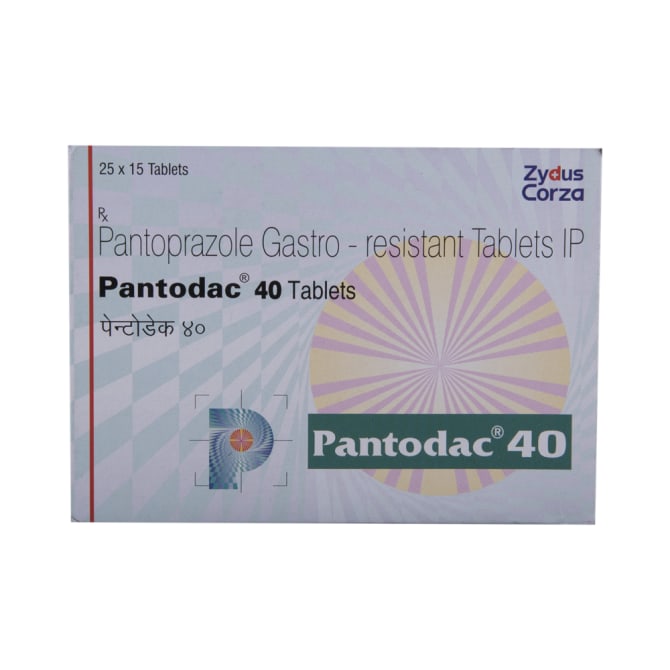What happens when you take Pantodac for acid reflux?
What is Pantodac(Pantoprazole)?
Pantoprazole is a medication used to treat certain stomach and esophageal problems. It functions by lessening the acid your stomach produces. Heartburn, swallowing issues, and coughing are all alleviated by this medicine.

It aids in the repair of esophageal and stomach ulcers and may aid in the prevention of esophageal cancer. Proton pump inhibitors are a class of medications that includes pantoprazole (PPIs).
How to use?
As prescribed by your doctor, take this medication by mouth once daily. Your medical condition and treatment response will determine the dosage and duration of the course of action.
You can take the tablets with or without food if you’re taking them. Completely swallow the tablets. Do not chew, split, or crush the medicine. This could render the medicine useless.
Take your dose of the granules 30 minutes before a meal if you’re using them. Open the packet and combine the granules with applesauce or apple juice to consume it orally. Never combine with additional foods or liquids. Never chew or crush the granules.
To reap the greatest benefits from this drug, take it frequently. Take it at the same time every day to aid in memory. Even if you feel better, keep taking this medication for the full duration of the recommended course of treatment. If your issue persists or worsens, let your doctor know. Over time, the risk of side effects increases.
Side effects of Pantodac
Diarrhoea or headaches could happen. Inform your doctor or pharmacist as soon as possible if any of these side effects persist or get worse. Keep in mind that your doctor has recommended this medication because they believe it will benefit you more than it will harm you.
Inform your doctor straight away if you experience any severe side effects, such as lupus symptoms, muscular spasms, abnormal heartbeat, or indications of low blood levels of magnesium (such as rash on nose and cheeks, new or worsening joint pain).
Rarely will this medication cause a very serious allergic reaction. However, if you experience any severe allergic response symptoms, such as fever, swollen lymph nodes, rash, itching or swelling (particularly of the face, tongue, or neck), extreme dizziness, difficulty breathing, or indications of kidney issues, seek medical attention immediately once (such as change in the amount of urine).
Precautions before using Pantadoc
Inform your doctor or pharmacist about all of your current medications, especially those for liver disease and lupus, before using this drug.
Some symptoms could be warning indications for a more serious ailment. Get medical attention right away if you experience any of the following symptoms: heartburn with fainting, sweating, or dizziness; chest, jaw, arm, or shoulder discomfort (particularly if it is accompanied by shortness of breath or extreme perspiration); or unexplained weight loss.
Inform your surgeon or dentist of all the products you use prior to surgery (including prescription drugs, nonprescription drugs, and herbal products).
Safety
A symptomatic response does not rule out stomach cancer; maintenance therapy is not recommended; safety and effectiveness have not been demonstrated for usage beyond 16 weeks; safety and effectiveness in paediatric patients have not been established.
The information presented here is based on the medication’s salt content. The medication’s effects and uses can differ from person to person. Before using this medication, a gastroenterologist should be consulted.
REFERENCES:
- https://www.webmd.com/drugs/2/drug-17633/pantoprazole-oral/details
- https://www.1mg.com/drugs/pantodac-40-tablet-324554
- https://www.medibuddy.in/medicines/pantodac-tablet
- https://www.practo.com/medicine-info/pantodac-40-mg-tablet-8628
- https://www.lybrate.com/medicine/pantodac-40-mg-tablet
For more details, kindly visit below.